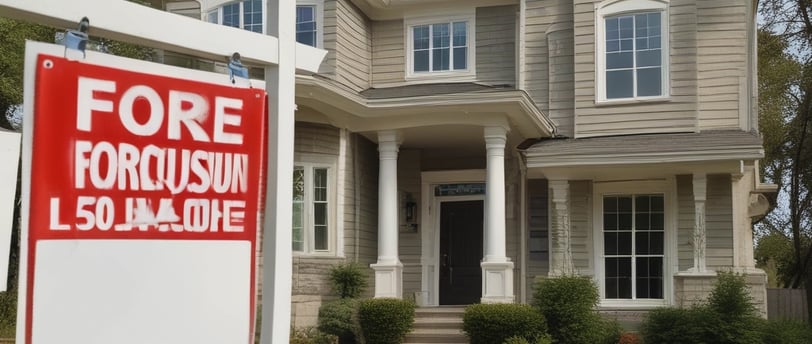Beware of These 5 Common Foreclosure Scams
2/16/20252 min read


Owning a home provides security and stability, but financial difficulties can put that at risk. Unfortunately, many fraudulent companies prey on struggling homeowners, offering false hope while stripping them of their equity and property. While not all foreclosure assistance services are dishonest, it's important to recognize the most common scams that could put your home and financial future in jeopardy.
1. Equity Stripping
In this scheme, a lender offers to refinance your mortgage, knowing that you’re in financial distress. The new loan is much larger than the original, with significantly higher monthly payments.
While this may seem like a solution at first, the higher payments quickly become unmanageable, leading to foreclosure.
The lender profits by taking over the home, while the homeowner is left with little to no remaining equity.
2. Lender Scams
Some lenders push homeowners into refinancing with an interest-only payment plan. This initially reduces payments, but it comes with a catch—a large balloon payment due later.
When homeowners can’t afford the balloon payment, they either face foreclosure or must refinance again under even worse terms.
While not technically illegal, these loans often put homeowners in a worse financial position.
3. Equity Skimming, AKA "Subject To"
In this scam, a so-called "investor" offers to take over mortgage payments in exchange for ownership of the home.
The scammer rents out the property back to the homeowner, collects rental income, and never makes payments to the lender.
Eventually, the bank forecloses, leaving the original homeowner with nothing and potential legal consequences.
If you have significant equity, the scammer may quickly sell the home for a profit and disappear.
4. Loan Flipping
Some lenders repeatedly encourage struggling homeowners to refinance, promising quick cash for home repairs or other expenses.
Each new refinance comes with high fees, reducing home equity.
Payments become increasingly unmanageable, pushing homeowners closer to foreclosure.
The lender profits by extracting as much money as possible before ultimately foreclosing.
5. Phony Loan Transactions
Fraudulent lenders claim to refinance a loan and provide fake documentation showing the mortgage is current.
In reality, the paperwork transfers ownership of the home to the company for a small payment.
The homeowner unknowingly signs away their rights and loses their property for a fraction of its value.
How to Protect Yourself from Foreclosure Scams
It’s normal to feel overwhelmed when facing foreclosure, and scammers know how to exploit this desperation. Many find their victims by searching public records and offering fraudulent solutions.
Verify credentials before working with anyone claiming to provide foreclosure assistance.
Avoid upfront fees—legitimate foreclosure assistance programs don’t require payment before services are rendered.
Consult a Certified Distressed Property Expert (CDPE) or a trusted real estate professional before making decisions.
Need Help? Talk to a Foreclosure Expert Today
Foreclosure is not the only option. If you’re struggling with your mortgage or at risk of foreclosure, reach out for ethical, expert guidance. As a Certified Distressed Property Expert (CDPE), I specialize in helping homeowners navigate difficult financial situations while protecting their rights and assets.
📅 Schedule a Free Consultation today to explore your options and protect your home’s future.






